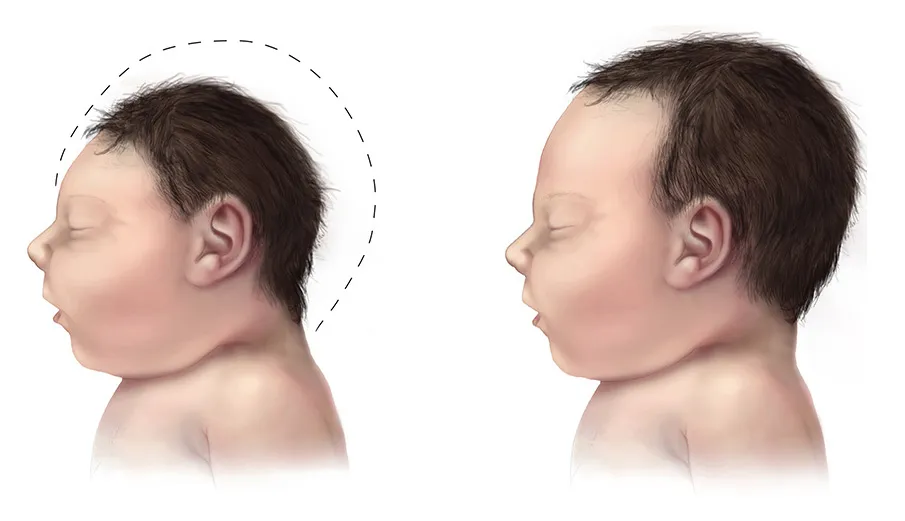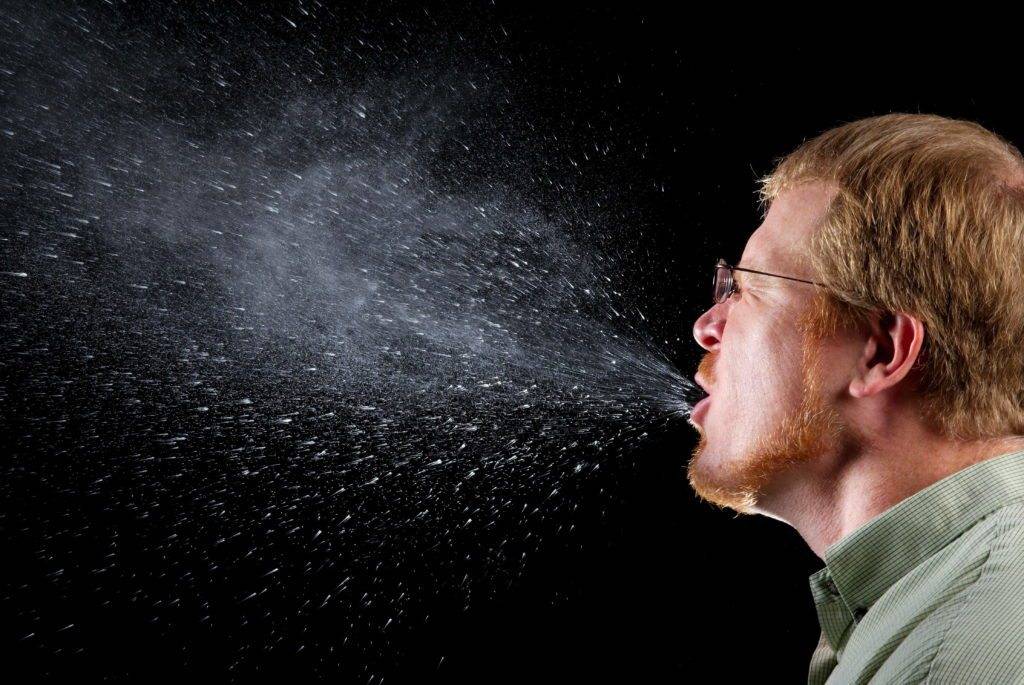Strep throat is a common infection, particularly among children. It causes significant discomfort and, if left untreated, leads to serious complications. Knowing when to see a doctor is crucial for parents so their child receives the appropriate care.
This comprehensive guide will help you understand the signs, symptoms, and treatment options for strep throat, highlighting when a visit to the doctor is necessary.
What is Strep Throat?
Strep throat is a bacterial infection caused by the group A Streptococcus bacteria. It primarily affects the throat and tonsils, leading to inflammation and pain. Children between the ages of 5 and 15 are most commonly affected, though it can occur in individuals of any age.
Children are particularly susceptible to strep throat due to their close contact with peers in schools and daycare settings. Strep throat is highly contagious and spreads through droplets when an infected person coughs or sneezes.
The bacteria easily spread from one child to another, especially during the colder months when respiratory infections are more common. Understanding the nature of strep throat and its transmission helps parents take necessary precautions to prevent the spread.
Common Symptoms of Strep Throat
Recognizing the symptoms of strep throat is the first step in determining whether your child needs medical attention. Here are some of the most common signs:
- Severe Sore Throat: A sore throat is the hallmark symptom of strep throat. Unlike a typical sore throat caused by a cold, the pain from strep throat is usually more intense and persistent. Your child may complain of a sharp, burning sensation in their throat. The pain is severe enough to interfere with eating, drinking, and even speaking.
- Difficulty Swallowing: Swollen tonsils and throat make swallowing painful and challenging. If your child avoids eating or drinking due to pain, it’s a clear sign that their sore throat is more serious than a simple cold. This is particularly concerning in young children
- Red and Swollen Tonsils: The tonsils appear red and swollen, often with white patches or streaks of pus. These white patches are caused by the accumulation of bacteria and dead cells, indicating a bacterial infection rather than a viral one. This is another hallmark sign.
- Fever: A high fever, often above 101°F (38.3°C), is common. The body raises its temperature to fight off the infection, and this fever can lead to chills, sweating, and general discomfort. The fever comes on suddenly and is typically higher than that associated with a viral sore throat.
- Swollen Lymph Nodes: The lymph nodes in the neck may become tender and swollen. You can feel these swollen nodes as small, tender lumps on either side of the neck. The lymphatic system’s response is to filter out the bacteria and fight the infection.
- Headache and Body Aches: General discomfort, including headaches and muscle aches, accompany strep throat. These symptoms are part of the body’s immune response to the infection and can make your child feel quite miserable.
- Nausea and Vomiting: Some children experience nausea, vomiting, or stomach pain. These symptoms are distressing and lead to dehydration if the child is unable to keep fluids down. This is particularly common in younger children and sometimes mistaken for a stomach virus.
When to See a Doctor

Recognizing the severity of your child’s symptoms helps you decide when to seek medical advice. Here are some key indicators that it’s time to visit a doctor:
- Persistent High Fever: If your child has a fever that persists for more than 48 hours or exceeds 102°F (38.9°C), consult a doctor. A persistent high fever indicates a serious infection requiring medical intervention.
- Severe or Worsening Symptoms: If your child’s sore throat is accompanied by severe pain, difficulty swallowing, or breathing problems, seek medical help immediately. These symptoms indicate a severe infection or complications.
- Lack of Improvement: If your child’s symptoms don’t improve within 48 hours of onset, or if they worsen, see a doctor. Early intervention prevents complications and provides relief more quickly.
- Rash: A rash, known as scarlet fever, accompanies strep throat. If your child develops a red rash with a sore throat, see a doctor, as this condition requires specific treatment.
- Exposure to Strep Throat: If your child has been in close contact with someone diagnosed with strep throat and starts showing symptoms, see a doctor. Early treatment prevents the spread of the infection and reduces symptom severity.
Diagnosis and Treatment
When you visit the doctor, they will perform a physical examination and may use a rapid strep test or throat culture to confirm the diagnosis.
- Rapid Strep Test: The rapid strep test involves swabbing the throat and testing for the presence of group A Streptococcus bacteria. Results are typically available within minutes. This test is highly convenient and allows for immediate treatment if positive.
- Throat Culture: A throat culture involves taking a swab from the throat and allowing it to grow in a lab to detect the presence of bacteria. This test takes longer but is more accurate than the rapid strep test. A throat culture is performed if the rapid test is negative but the doctor still suspects strep throat.
- Antibiotics: If your child is diagnosed with strep throat, the doctor will prescribe antibiotics, such as penicillin or amoxicillin. It’s crucial to complete the entire course of antibiotics, even if your child starts feeling better before finishing the medication. This ensures that the infection is fully eradicated and helps prevent complications.
- Home Care: Along with antibiotics, home care is essential for your child’s recovery. Encourage rest, provide plenty of fluids, and offer soothing foods like soups and soft fruits. OTC pain relievers, such as ibuprofen or acetaminophen, help ease pain and reduce fever. A humidifier also helps keep the throat moist and reduces inflammation and discomfort.
Preventing the Spread of Strep Throat

Preventing the spread of strep throat is vital to protect other family members and classmates. Here are some tips to reduce the risk of spreading the infection:
- Hand Hygiene: Encourage frequent handwashing with soap and water. This is one of the most effective ways to prevent the spread of germs. Teach your child to wash their hands thoroughly, especially after coughing, sneezing, or blowing their nose.
- Avoid Sharing: Don’t share eating utensils, drinking glasses, or personal items with an infected person. This includes towels, toothbrushes, and other items that come into contact with saliva or mucus.
- Cover Mouth and Nose: Teach your child to cover their mouth and nose with a tissue or elbow when coughing or sneezing. This helps prevent the spread of infectious droplets.
- Stay Home: Keep your child home from school or daycare until they have been on antibiotics for at least 24 hours and feel better. This helps prevent the spread of strep throat to other children and allows your child to rest and recover fully.
Complications of Untreated Strep Throat
While strep throat is generally mild, untreated strep throat leads to serious complications. Understanding these potential complications underscores the importance of timely medical intervention.
Rheumatic Fever
This may be a rare but serious complication that affects the heart, joints, nervous system, and skin. It typically develops two to four weeks after a strep throat infection.
The symptoms are fever, painful and swollen joints, chest pain, rash, and involuntary muscle movements. Rheumatic fever can cause long-term damage to the heart valves, leading to rheumatic heart disease.
Post-Streptococcal Glomerulonephritis
This condition affects the kidneys with symptoms like blood in the urine, swelling, and high blood pressure. It occurs after a strep throat infection if not properly treated. While it’s rare, it leads to long-term kidney damage if not addressed promptly.
Abscesses
Untreated strep throat leads to abscesses (pockets of pus) around the tonsils, known as peritonsillar abscesses. These abscesses cause severe pain, swelling, and difficulty swallowing.
This condition often requires drainage or surgical intervention to prevent the infection from spreading further. Symptoms include severe throat pain, difficulty swallowing, and swelling in the neck.
Understanding Recurrent Strep Throat
Some children may experience recurrent strep throat infections. If your child has multiple episodes of strep throat within a short period, it’s essential to investigate potential underlying causes.
Possible Causes
- Close Contact: Close contact with someone with strep throat increases the risk of recurrent infections. This is particularly common in households or school settings where children are nearby.
- Chronic Carrier State: Some children carry the bacteria without showing symptoms, leading to frequent infections. These carriers spread the bacteria to others, even if they aren’t actively sick.
- Immune System Issues: Underlying immune system issues can make children susceptible to recurrent infections. If your child has an underlying health condition that affects their immune system, they may be at higher risk for repeated bouts of strep throat.
Preventive Measures
- Tonsillectomy: In some cases, removing the tonsils (tonsillectomy) may be recommended for children with recurrent strep throat. This procedure can reduce the frequency of infections and improve overall quality of life.
- Hygiene Practices: Reinforcing good hygiene practices can help reduce the risk of recurrent infections. Encourage regular handwashing, avoid sharing personal items, and ensure your child covers their mouth and nose when coughing or sneezing.
- Follow-Up Care: Regular follow-up visits with the doctor can help monitor your child’s health and prevent future infections. Your doctor may recommend periodic check-ups to ensure your child’s throat and overall health are stable.
When to Consider a Specialist
Your child’s doctor may refer you to an ear, nose, and throat (ENT) specialist for further evaluation and treatment. This is particularly important if your child experiences complications, recurrent infections, or has an underlying condition affecting their throat.
Role of the ENT Specialist
ENT specialists, also known as otolaryngologists, are trained to diagnose and treat medical conditions affecting the ear, nose, and throat. They perform procedures like tonsillectomy and manage more complex cases of strep throat.
If your child is frequently experiencing strep throat or has complications, an ENT specialist provides targeted care and recommends the best course of action.
Benefits of Seeing an ENT Specialist
- Comprehensive Evaluation: An ENT specialist provides evaluation of your child’s throat, ears, and nasal passages. They identify any underlying issues contributing to recurrent infections or complications.
- 6 Essential Ways Pediatricians Track Developmental Milestones in ChildrenSpecialized Treatment: ENT specialists have specialized training and expertise in treating conditions affecting the ears, nose, and throat. They can offer advanced treatment options and surgical interventions if necessary.
- Long-Term Management: If your child has chronic or recurrent strep throat, ENTs develop a long-term management plan. This includes regular monitoring, preventive measures, and lifestyle modifications to reduce the risk of future infections.
Supporting Your Child Through Recovery
Helping your child recover from strep throat involves more than just medical treatment. Emotional support and comfort play a significant role in their recovery.
- Comfort and Reassurance: Reassure your child that they will feel better soon and provide comfort through hugs, cuddles, and kind words. Let them know it’s okay to rest and take it easy.
- Distraction and Entertainment: Keep your child entertained with books, movies, or quiet activities they enjoy. This can help take their mind off the discomfort and make recovery more pleasant.
- Communication: Encourage your child to communicate how they’re feeling. Understanding their symptoms and emotions can help you provide better care and make them feel more supported.
See a Doctor for Prompt Treatment of Your Child’s Strep Throat
Strep throat is a common but potentially serious infection in children. Understanding the symptoms and when to see a doctor makes a difference in your child’s health and recovery. Early diagnosis and treatment are crucial to prevent complications and ensure a speedy recovery. Stay informed and proactive to ensure your child’s well-being.
If you’re in doubt, it’s best to consult a healthcare professional for advice and peace of mind. For more information on children’s health and related topics, check out these helpful resources from Omegapediatrics.com:





